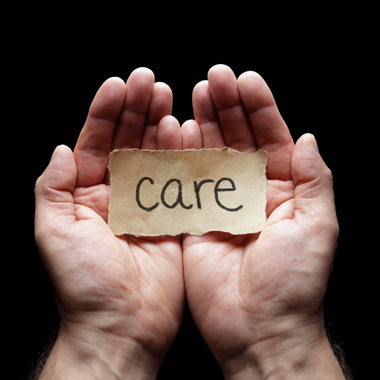Childhood cancer, although rare, remains the leading cause of death by disease in children under the age of 15 years. In 2024, around 9620 individuals in this age group in the United States will be diagnosed with cancer, and over 1000 are expected to die from the disease. Despite its rarity, the impact of the disease in young people is long-lasting, with challenges extending well beyond the completion of treatment.
However, thanks to significant advancements in treatment, the survival rates for childhood cancer have improved dramatically. Currently, up to 85% of children with cancer now live 5 years or more after their diagnosis. This is a substantial increase from the mid-1970s when the 5-year survival rate was about 58%. Specific subtypes of childhood cancer, such as acute lymphoblastic leukemia, have seen even more remarkable improvements in survival rates. It is important to note that surviving 5 or more years beyond diagnosis does not, however, indicate long-term survival.
In the US, a concerning trend has emerged—a rise in cancer incidence among adolescents and young adults (AYA) aged 15 to 39 years at the time of their diagnosis. Concurrently, overall cancer mortality is declining, resulting in a growing population of AYA cancer survivors who may live 50 to 60 years beyond their diagnosis. Despite this, AYA cancer survivors often fall through the gaps in both pediatric and adult cancer care models due to limited knowledge, leaving many without routine survivorship care.
A Diagnosis with Lasting Impact
The journey for childhood cancer survivors does not end when treatment concludes. Survivors often face numerous long-term challenges that include the following obstacles.
- Physical health issues. Many survivors experience chronic health problems (eg, heart and lung issues, growth and development delays, secondary cancers) related to their cancer treatment.
- Emotional and psychological impact. The trauma of cancer diagnosis and treatment can lead to emotional and psychological challenges including anxiety, depression, and post-traumatic stress disorder.
- Social and educational barriers. Survivors may encounter difficulties in education and social integration due to prolonged absences from school and the need for ongoing medical care.
Given their age at diagnosis and subsequent life expectancy, AYA survivors in particular face heightened risks of both cancer and treatment-related late effects including secondary cancers, cardiovascular disease, and endocrine dysfunction. For instance, women treated with thoracic radiation therapy have a significantly increased risk of breast cancer, and those treated with abdominal, pelvic, or spinal radiation therapy are at higher risk for colorectal cancer. It is essential that these survivors are aware of, and have access to, necessary screenings to ensure high-quality survivorship care.
Psychosocial Challenges
Beyond physical late effects, AYA cancer survivors are also more susceptible to psychological distress that involves low self-esteem, social isolation, and disruptions in education or employment. Patients diagnosed between 20 to 29 years of age are less likely to use professional mental health services, and they often report a lack of age-appropriate information about their cancers. Furthermore, AYA patients are more likely to engage in risky behaviors like tobacco and alcohol use. Identifying at-risk patients and referring them to suitable support services is crucial for improving the long-term quality of life for AYA cancer survivors.
Aside from psychosocial challenges, survivors of AYA cancer face numerous barriers to obtaining survivorship care; these include a fear of recurrence, the desire to move on with life, unclear follow-up recommendations, time constraints, and a lack of perceived need. Community oncology teams can address these barriers by providing intensive education to patients before they transition out of the oncology clinic, implementing survivorship care plans that emphasize the heightened risks faced by AYA survivors, and using telehealth to reduce logistical challenges. Psychological interventions can help reduce fear of recurrence, whereas self-management support can enhance survivors’ health management skills.
Prioritizing Survivorship Care
The journey of childhood and AYA cancer survivors underscores the importance of continued support and comprehensive care. This includes regular follow-up appointments, access to mental health services, age-appropriate survivorship care, and educational support to help survivors reintegrate into their daily lives.
The majority of AYA cancer survivors receive care in a community setting. Therefore, it is important to offer AYA survivorship care in a community model. Furthermore, the implementation of AYA-specific survivorship programs is crucial to address survivors’ multifaceted needs. These programs should focus on comprehensive care that includes not only medical follow-up but also psychosocial support and financial counseling. By providing education and resources tailored to the unique experiences of AYA survivors, these programs can help mitigate the long-term effects of cancer and improve overall outcomes.
Additionally, increasing awareness of and access to affordable health insurance is key, and oncology care teams should refer AYA survivors to financial planning or management services if indicated. Effective survivorship care requires a coordinated approach involving health care providers, mental health professionals, and community resources to ensure that AYA survivors receive the holistic support they need.
The fight against childhood and AYA cancer has made significant strides. Still, there is much work to be done. Continued research, improved treatments, and comprehensive survivor care are essential to ensure that every child and young adult not only survives cancer but thrives in the years beyond.
Molly Kisiel, MSN, FNP-BC is director, Clinical Content, Editorial Content and Strategy, Association of Cancer Care Centers, Rockville, Maryland.

